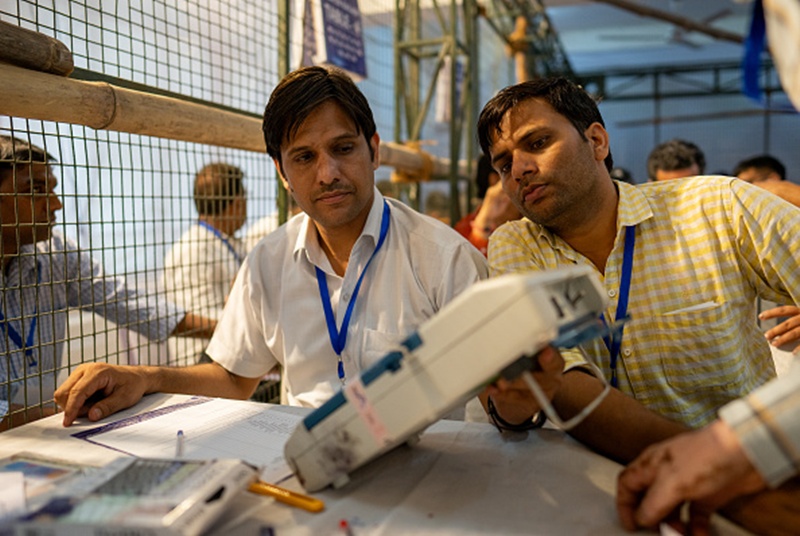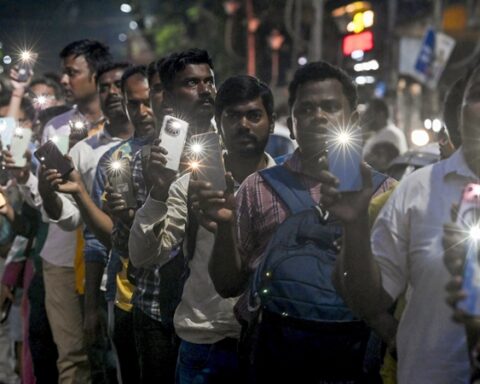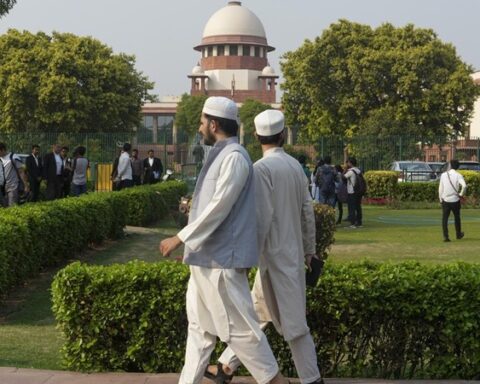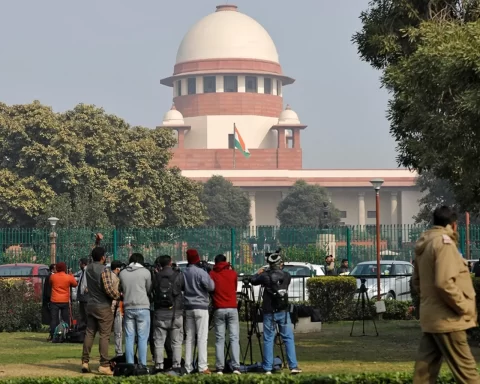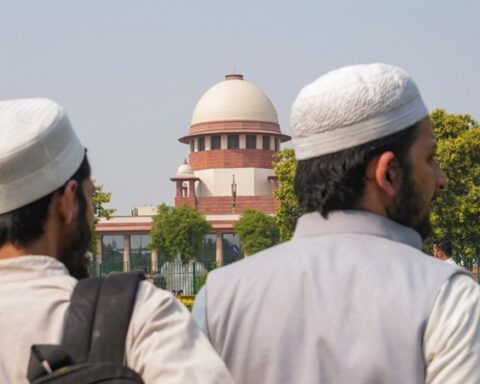New Delhi, Feb 11 (PTI) The Supreme Court on Tuesday sought the Election Commission of India’s response on the pleas seeking verification of the burnt memory and symbol loading units in EVMs in compliance of its judgement.
A special bench comprising Chief Justice Sanjiv Khanna and Justice Dipankar Datta asked the poll panel to refrain from erasing or reloading data during the verification process.
The pleas sought a direction to the poll panel to check and verify burnt memory/micro-controllers and the symbol loading unit (SLU) of electronic voting machines (EVM).
The bench asked the poll panel to file its response within 15 days and explain the procedure adopted and posted the matter in the week commencing March 3.
Irked over suppression of the fact relating to a similar petition which was dismissed as withdrawn, the bench said it would not hear a fresh plea filed by former Haryana minister and five-time MLA Karan Singh Dalal seeking a policy for the verification of EVMs.
The bench issued notices to the poll panel on the interim application filed by NGO Association for Democratic Reforms (ADR) and a losing candidate Sarv Mitter, represented by senior advocate Devadatt Kamat.
The top court, in its judgement of April 26, last year, rejected the demand for reverting to the old paper ballot system, saying the polling devices were “secured” and eliminated booth capturing and bogus voting.
It, however, opened a window for aggrieved unsuccessful candidates securing second and third places in poll results and allowed them to seek verification of micro-controller chips embedded in 5 per cent EVMs per assembly constituency on a written request upon payment of a fee to the poll panel.
The top court directed that from May 1, last year, the symbol loading units should be sealed and secured in a container and stored in a strongroom along with the EVMs for a minimum of 45 days post-declaration of results.
ADR in a fresh plea, said the standard operating procedure of the poll panel for verification of the EVMs was not in accordance with the 2024 judgement passed on its petition in the EVM-VVPAT case.
On Tuesday, the bench asked the poll panel on the erasure and reloading of polling data.
The bench said the judgement did not mandate such actions but merely required verification of the EVMs by an engineer of the manufacturing company.
“What we intended was that, if after the polls somebody asks, the engineer should come and certify that, according to him, in their presence, there is no tampering in any of the burnt memory or microchips. That’s all. Why do you erase the data?” asked the CJI.
He went on, “We didn’t want such a detailed process that you reload something. Do not erase the data, do not reload the data — all you need to do is have someone verify and examine.” The bench also raised concerns over the cost of verification set by the EC after being informed that Rs 40,000 was charged for verifying one EVM.
“Reduce the cost of 40,000 — that’s too high,” it said.
Seeking the poll panel’s response, the bench recorded its assurance that no modification or correction of EVM data would take place during the verification process.
“Mr Singh (ECI counsel) states that they will clarify the position by filing a short affidavit explaining the procedure adopted by them. He also states they won’t be doing any modification/correction of the data,” it said.
Advocate Prashant Bhushan, representing ADR, said the SOP on EVM verification was insufficient as per the court’s ruling.
“What we want is for someone to examine the software and hardware of the EVMs to see whether they contain any element of manipulation,” he said.
The NGO on December 23 last year filed the plea in a decided case for directions to the poll panel to ensure a strict compliance of the judgement.
The miscellaneous application stemmed from the April 26, 2024 judgment in which the top court laid down specific protocols for the checking and verification of EVM components, including their memory systems and symbol loading units.
The plea sought compliance with the court’s judgment requiring verification of the “burnt memory” and microcontrollers of EVMs to ensure their integrity and security.
It underscored the need to verify the symbol loading unit, a critical component of the EVM infrastructure, to maintain transparency in the electoral process.
The plea urged the court to direct the EC to refrain from clearing or deleting the contents of the original burnt memory of EVMs, particularly in cases where verification applications were pending.

